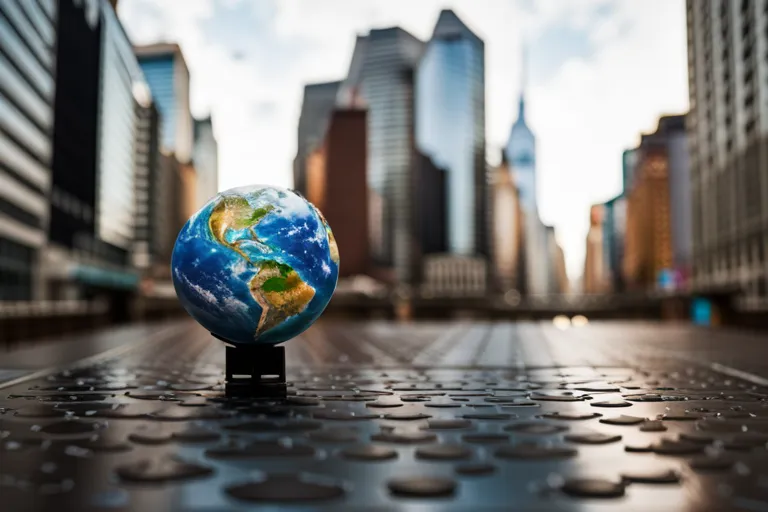The Cost of Denial: How Climate Change Skepticism is Endangering Our Planet

As the effects of climate change become increasingly evident all around the world, it has become clear that denialism can no longer be ignored. While some still cling to outdated views, a growing number of people are coming to understand the serious implications of denying climate change.
In this story, we explore how refusal to accept scientific evidence and take action is doing irreparable harm to our planet - and what can be done about it. .
Introduction
Climate change is a reality that has been widely accepted by the scientific community for many years. However, despite overwhelming evidence and the dire consequences of inaction, there are still those who deny its existence. Climate change denialism has caused irreversible damage to our planet and hindered efforts to mitigate its effects.
The Effects of Climate Change
One of the most noticeable effects of climate change is rising sea levels. As temperatures rise due to increasing greenhouse gas emissions, ice caps melt and oceans expand, leading to more frequent and severe flooding in low-lying coastal regions.
Natural disasters such as hurricanes, tornadoes, wildfires, and droughts have also become more frequent and intense due to climate change. These events not only cause significant damage but also put human lives in danger.
Furthermore, climate change has led to ocean acidification, i.e., increased acidity of seawater due again stemming from carbon dioxide emissions into the atmosphere. This process harms marine life by making it challenging for certain species like corals or shellfish with calcium carbonate shells or skeletons to build them effectively.
Why People Deny Climate Change
Despite all this evidence showing the adverse impact on nature because of climate change, some people still argue against it based on misinformation campaigns driven primarily by fossil fuel companies trying to protect their interests. They fund dubious studies or use lobby groups that spread false information on social media while emphasizing uncertainty over the data gathered through scientific research.
But perhaps even more troubling is political polarization around this issue—not limited purely within nations—whereby some leaders’ positions have become entwined with rejecting any measures that might harm industries’ profits rather than protecting people’s welfare.
Damage Caused by Climate Change Denial
When policymakers fail to acknowledge and address climate change concerns consistently—either ignoring them outright or merely paying lip service—the delay results in policies designed far too late without contingencies taken into account regularly. It leads ultimately costs time, money, and more importantly, the quality of life for all species on earth.
Furthermore, thriving on non-renewable energy sources due to a lack of commitment from policymakers or investment in renewable technologies gives rise to greater carbon emissions. Climate denialism contributes significantly to delaying progress toward cleaner sources of energy.
Examples of Irreparable Harm Caused by Climate Change Denial
Denying the severity or existence of climate change is not just an ideological fight; it has real-life consequences. For example, loss of biodiversity resulting in entire ecosystems vanishing means that certain flora and fauna will never return again. And communities already facing social injustices face displacement due to sea-level rise would be one such consequence.
Millions could lose their homes as coastal areas susceptible to flooding increase. The impact on people’s lives—especially those who are most vulnerable socially and economically—can’t understate.
Conclusion
In conclusion, climate change denialism rhetoric allows individuals, corporations, governments alike ignore the paramount significance that acknowledging its presence entails must come with action at this point as leaving things idle more dangerous than admitting there is a problem at hand that requires urgent attention. We must address this issue head-on and take concrete steps towards mitigating its effects before it’s too late.
